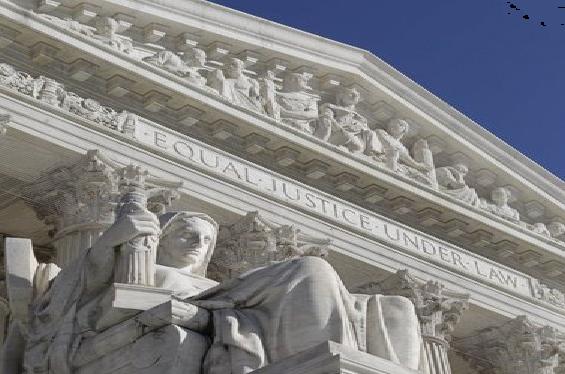(amount mentioned is valid through 2013 & 2014)
Witnesses in e-court statements are only allowed as evidence if the statement is authenticated/attested by a notary. This means that the notary confirms the identity of the person(s) who signed
the document(s) for deposit. The e-Court notary can be asked to complete this task at an additional cost of Euro120, however also other notaries not registered with e-Court are accepted.
Notarized evidence from witnesses in e-court proceedings are allowed

The Netherlands updates its Arbitration Act
source : Wouter de Clerck

Although the Netherlands is not yet recognised as a traditional seat for international arbitration when compared to established seats such as France (Paris), the United Kingdom (London) and Switzerland (Geneva), its parliamentary capital, The Hague, is firmly on the international arbitration map as an alternative seat.
Home of the Permanent Court of Arbitration (PCA) since 1901, the city traditionally attracts arbitrations between states and private parties and is likely to broaden its reach still further with the recent establishment of the P.R.I.M.E. Finance arbitration institute for the settlement of disputes in relation to complex financial transactions.
In April 2013 the Dutch government published a bill for the 'modernisation of Netherlands arbitration law'. Among other things, the bill aims to ensure the continued appeal of the Netherlands Arbitration Act (1986) to international users. Some of the changes that are proposed in the bill are discussed below.
Decisions in relation to breach of agreement to arbitrate
First, the bill seeks to clarify the position of foreign parties who find themselves summoned to appear in a Dutch court in spite of an agreement to arbitrate. A new provision will specify that the question of whether the parties agreed to arbitrate in the contractual sense will be decided by the Dutch court according to Netherlands law if no express choice was made for another law to apply to the arbitration agreement.
In line with this is the proposal to codify the Lizardi rule, which is well known under Dutch law and precludes a public entity from relying on its internal constitution to argue that it lacked the capacity to enter into an arbitration agreement or that the dispute cannot be settled by arbitration.
Both proposed provisions can be traced back to Dutch case law and will not create new rules. However, it is anticipated that they will bolster the strength of arbitration agreements in the Dutch courts and promote greater predictability of judicial decisions on this topic.
Changes to reinforce arbitration as a dispute resolution method
Second, a number of changes are proposed which, if enacted, will cement the position of arbitration in the Netherlands as a legitimate and self-contained dispute resolution process that can mostly do without assistance from the Dutch courts. One important provision is a proposal to limit proceedings to set aside arbitration awards to one full instance on the appellate level, with a subsequent right of appeal to the Supreme Court on questions of law (provided the parties did not agree to exclude the right to appeal to the Supreme Court altogether). If this particular provision becomes law, it will make the procedure, which currently involves up to three instances (district, appellate and Supreme Court level) considerably more simple and predictable.
The bill also allows for revision of the award by the arbitral tribunal during set-aside proceedings, so that a particular ground for setting aside the award may be eliminated. This is in line with international standards (the UNCITRAL model law) and even exceeds those standards insofar as it is proposed that the court of appeal will have the power to relegate the matter to the arbitral tribunal ex officio (i.e. by virtue of its powers as a tribunal).
Moreover, the bill proposes to clarify that the setting aside of an award by the court of appeal will only result in the revival of the courts’ jurisdiction if the ground for setting aside was the absence of a (valid) arbitration agreement. The default position pursuant to the proposed provision (although it is open to the parties to agree otherwise) will be that the parties are bound by their agreement to arbitrate in case of other defects in the award, such as the incorrect appointment of (one of) the arbitrators.
A further example of the government’s favourable view of arbitration is the proposal to allow for the parties to agree that challenges to arbitrators' appointment should be made exclusively to the arbitration institute rather than in the courts. This may not sound novel in an international context, but it does represent a new development in the Netherlands, where currently a party can always resort to the court as a residual forum for a challenge.
Removal of requirement to register awards with the court
Third, there is a proposal that the arbitral tribunal is no longer required to deposit an award with the court registry (which, currently, triggers the limitation period for a setting aside action). This will iron out a procedural kink that is relatively unknown to international users of the Netherlands Arbitration Act.
Document production
Fourth, the bill specifies in more detail the test which is to be applied to a request for document production made by one of the parties in an arbitration. In its current draft, the proposed text appears closer to the internationally accepted thresholds of the IBA Rules on the Taking of Evidence in International Arbitration. However, it remains to be seen how this particular provision (again, if enacted) will be interpreted and applied in practice. Reference is made in the explanatory text that accompanies the bill to the statutory rules for document production in court proceedings, but these statutes approach the issue of document production from a decidedly different angle and non-Dutch users are unlikely to be familiar with it.
TOPICS:
- ABOUT e-COURT
- home
- preliminary information
- introduction ( About us )
- benefits
- scope of legal areas
- directorate
- supervisory board
- advisory council
- originating partners
- e-Court & ADRpartners
- articles of operation
- privacy
- legal information
- in the news
- ( e-Court versus ADR )
- COSTS
- *** introduction
- *** membership
- *** court fee
- *** escrow
- *** hearings costs
- *** ATTESTATION COSTS
- *** extrajudicial costs
- *** legal counsel fees
- *** subsequent costs
- frequently asked questions
- OFFLINE NETWORKING
Endorsements ( 1/2000 + ):
- Patricia M. Swerhone
Waters and Associates, Barristers & Solicitors, Toronto - Kenneth J. Byrne
Immigration and Real Estate Lawyer at Benson Buffett, Newfoundland And Labrador - Amy M. Crosbie
Partner at Curtis, Dawe, Newfoundland And Labrador - Justice Clark
Partner at Simmons Da Silva + Sinton LLP, Toronto - Stanley Potter
Owner, Stanley J. Potter, Barrister & Solicitor, Toronto - Justice Clark
Partner at Simmons Da Silva + Sinton LLP, Toronto - Stanley Potter
Owner, Stanley J. Potter, Barrister & Solicitor, Toronto - Tony Lafazanis
Personal injury lawyer at Tony Lafazanis, Toronto, - Steve A.
Lawyer at Defend Your Points - Traffic Ticket Lawyers, Toronto - Tina Schultz
Owner ~ Broken Link Divorce Planning, Calgary - Joseph W.J. F.
General counsel at Law Office, New Brunswick, Canada - Diana McGuire
Foord and Davies Law Firm, Ottawa - Anushika Anthony
Personal Injury Lawyers, Toronto - James A. Carr
Barrister and Solicitor at Carr Quinn King, Edmonton - Anna L.
University of Ottawa Law School - ( Endorsements continued.....)















